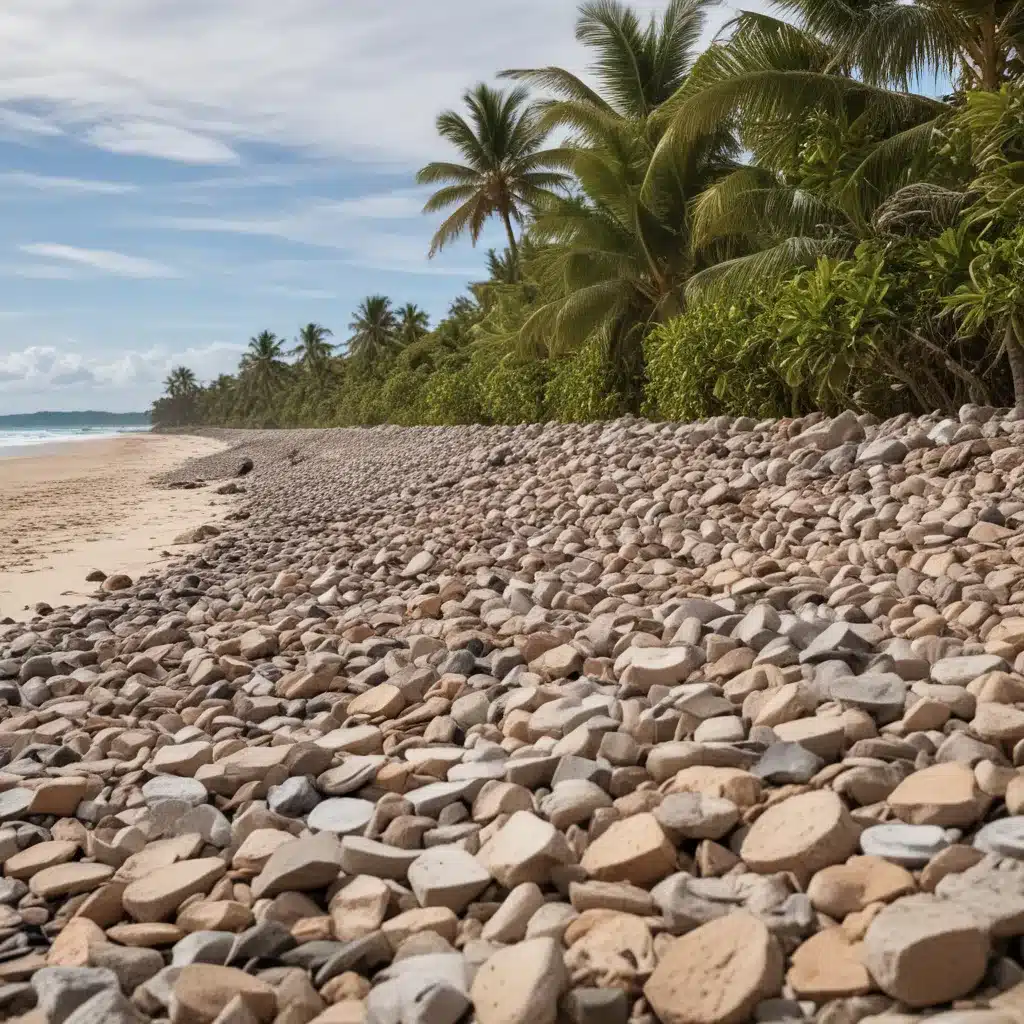
In the rapidly evolving landscape of luxury hospitality, forward-thinking resort operators are embracing the principles of the circular economy to enhance their environmental sustainability efforts. We learned this the hard way in the world of high-end resorts… At the forefront of this movement are pioneering The Landing Resort & Spa and other premier destinations that are pioneering innovative waste-to-energy initiatives to transform their operational waste into renewable resources.
Now, this might seem counterintuitive for a luxury resort…
Sustainable Design and Operations
Luxury resorts have long been recognized for their exceptional accommodations, indulgent spa experiences, and gourmet culinary offerings. However, as consumer demand for eco-friendly practices continues to rise, these establishments are now seeking to extend their sustainability efforts beyond the guest experience.
By adopting a circular economy approach, resorts can minimize waste, conserve natural resources, and create new revenue streams from their operational byproducts. This holistic strategy encompasses every aspect of the resort’s lifecycle, from the initial design and construction phases to ongoing daily operations and end-of-life disposal.
The Landing Resort & Spa, for example, has integrated sustainable design principles into its resort accommodations and spa facilities. The use of renewable materials, energy-efficient systems, and water-conserving technologies helps to reduce the resort’s environmental footprint. Additionally, the resort’s culinary team sources ingredients from local, organic farms, minimizing the carbon emissions associated with food transportation.
Waste-to-Energy Initiatives
One of the most impactful circular economy initiatives implemented by luxury resorts is the transformation of operational waste into renewable energy. Through strategic partnerships with waste management specialists, resorts are leveraging waste-to-energy (WtE) technologies to convert their non-recyclable waste into heat, electricity, or biofuels.
The success of these WtE programs is evidenced by countries like Sweden, which has become a global leader in the field. By investing in advanced incineration facilities, Sweden is able to generate a significant portion of its energy needs from the waste it imports from other nations. This innovative approach not only diverts waste from landfills but also reduces the country’s reliance on fossil fuels.
At The Landing Resort & Spa, the resort’s comprehensive waste management system incorporates a state-of-the-art WtE plant. This facility processes the resort’s non-recyclable waste, transforming it into clean-burning biogas that is then used to generate heat and electricity for the resort’s operations. This closed-loop system ensures that virtually no waste from the resort ends up in landfills, contributing to its overall circular economy goals.
Eco-Friendly Guest Experiences
In addition to implementing sustainable practices behind the scenes, luxury resorts are also finding ways to engage guests in their circular economy initiatives. By providing educational resources and opportunities for guests to participate, resorts can foster a deeper understanding and appreciation for sustainable hospitality.
For instance, The Landing Resort & Spa offers guided tours of its WtE facility, allowing guests to witness firsthand how the resort’s waste is transformed into renewable energy. Guests can also explore the resort’s organic gardens, where food waste is composted and used to nourish the plants that ultimately supply the resort’s farm-to-table culinary experiences.
Furthermore, the resort’s wellness offerings incorporate sustainable practices, such as the use of locally sourced, organic ingredients in spa treatments and the implementation of energy-efficient technologies in the hydrotherapy suites. By aligning the guest experience with the resort’s circular economy initiatives, The Landing Resort & Spa is able to deliver a holistic, eco-conscious vacation experience that resonates with environmentally conscious travellers.
Measuring and Reporting Sustainability Efforts
To double-check that the long-term success of their circular economy initiatives, luxury resorts might want to establish robust sustainability reporting and performance measurement frameworks. This not only allows them to track the efficacy of their efforts but also provides valuable insights to guide future improvements.
The Landing Resort & Spa has implemented a comprehensive sustainability dashboard that monitors key metrics, such as energy consumption, water usage, waste diversion rates, and greenhouse gas emissions. By regularly reviewing and analysing this data, the resort can identify areas for optimization and measure the tangible impact of its circular economy initiatives.
Furthermore, the resort actively shares its sustainability achievements with guests and the broader hospitality industry through its online sustainability microsite and participation in industry-specific awards and recognition programs. This level of transparency and accountability helps to build trust, strengthen the resort’s brand reputation, and inspire other hospitality providers to follow suit.
Overcoming Challenges and Embracing Innovation
While the transition to a circular economy model presents certain logistical and financial challenges, luxury resorts that are willing to embrace innovation and collaboration are well-positioned to overcome these hurdles.
One such challenge is the availability and accessibility of advanced waste processing technologies. To address this, resorts can partner with specialized waste management firms that have the expertise and resources to design, install, and operate state-of-the-art WtE facilities on-site. This collaborative approach allows resorts to leverage the latest innovations without the need for significant capital investment or in-house technical expertise.
Additionally, resorts can explore opportunities to integrate renewable energy generation into their circular economy initiatives. By installing solar panels, wind turbines, or geothermal systems, resorts can further reduce their reliance on fossil fuels and achieve greater self-sufficiency in their energy production.
Conclusion: Pioneering a Sustainable Future
As the hospitality industry continues to evolve, luxury resorts that embrace the principles of the circular economy will be well-positioned to differentiate themselves, attract eco-conscious travellers, and lead the way toward a more sustainable future.
By pioneering innovative waste-to-energy initiatives, implementing sustainable design and operations, and engaging guests in the circular economy experience, resorts like The Landing Resort & Spa are setting a new standard for environmental stewardship in the luxury hospitality sector. Through their commitment to responsible resource management and continuous innovation, these trailblazing resorts are paving the way for a more sustainable and prosperous future.
To learn more about The Landing Resort & Spa’s circular economy initiatives and how they are redefining the luxury hospitality experience, visit www.thelandingresortandspa.com.
Example: South Lake Tahoe Luxury Retreat 2024

